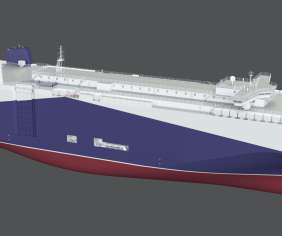DHL to use biofuel to neutralize carbon emissions of all ‘less-than-container’ load shipments in ocean freight globally
Green Car Congress
SEPTEMBER 29, 2020
Even though we are in unprecedented times, due to the ongoing pandemic, we have to make sure that climate protection and sustainability efforts remain at the forefront. This is why we have taken the decision to neutralize the carbon emission of all our LCL shipments. —Tim Scharwath, CEO DHL Global Forwarding, Freight.













Let's personalize your content